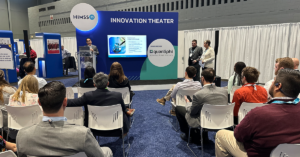Healthcare costs continue to rise across the industry. According to a study published in the Journal of the American Medical Association, money spent on healthcare in the U.S. is nearly twice as high as 10 high-income countries. Not only does the U.S. have the highest percentage of obese adults but it also has the lowest life expectancy and the highest infant mortality rates compared to 10 high-income counties. What’s driving these costs? According to Harvard researchers, prescription drug prices and administrative costs are the main culprits.
Prescription Drug Prices
Prescription drug costs are high, not only for payers, but also for the patients that need these life-saving drugs. Unfortunately, treatment for some diseases can cost nearly a million dollars as one Wall Street Journal article explores. The administration is looking to put policies in place to cut costs, but what can be done at the health system level to help these efforts?
St. Joseph Hospital, part of Covenant Health, leverages MedeAnalytics to analyze their pharmaceutical spend and identify cost saving opportunities. The health system found that an extremely high percentage of their pharma spend came from specialty drugs. They were able to identify $100,000 in potential savings, just from generic drug substitution in three therapeutic classes where generic equivalents were available. Additionally, pharmaceutical data revealed one patient with a single drug at a special dosage cost $700 for a 30-day supply. Using analytics, the organization confirmed the cost was correct but also found other patients who were taking the same drug in a smaller dosage two or three times a day, had a significantly lower cost. By simply changing the dosage, they reduced the cost from $700 to just $9 a month. Download our case study to learn more on how St. Joseph Hospital cut costs around their pharma spend.
Administrative Costs
Costs related to planning, regulating and managing a health system account for eight percent of total spend in the U.S. compared to one to three percent in other countries. Health plans are always looking to improve efficiency, grow revenue and reduce overall costs, especially at the operating level but frequently run into roadblocks.
Presbyterian Health System (PHS), an integrated delivery system with eight hospitals in New Mexico, understands the challenges of balancing costs, utilization and quality all too well, as the organization struggled to oversee its entire business from one integrated view. However, after they partnered with MedeAnalytics, PHS was able to achieve measurable ROI in their financial, clinical and operational areas while reducing redundancies. For more on their approach to cut administrative costs, view here.
Despite the high cost of care facing the country, the U.S. is spearheading critical research into drugs, treatment and approaches that will change the state of care for so many patients. Learn more about how our analytics solutions can help you uncover insights to support your organization during these changing times. You can view our solutions here or contact us here.
Get our take on industry trends
Best practice tools to build an integrated approach to multimorbidity
The traditional model of treating single diseases no longer works. Data collected from 2016 to 2019 indicated that 32.9% of…
Read on...Will adopting a risk-based approach with augmented analytics support care gap closure?
A common challenge for healthcare systems is how to properly segment its patient populations based on risk profiles and co-morbidities. Doing this well ensures a high quality of care delivery and superior patient outcomes.
Read on...4 questions healthcare executives are asking about augmented analytics
At our annual Impact Summit, I had the privilege to talk about augmented analytics and address questions from healthcare executives—many…
Read on...



